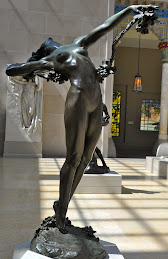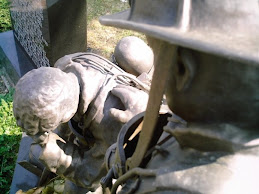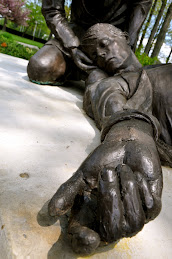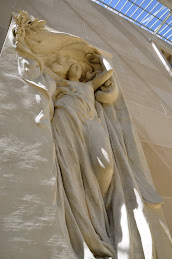By Joseph Kellard
Wonderous Stories once played the Beatles’ “Sgt. Pepper’s Lonely Hearts Club Band,” the Who’s “Tommy” and Yes’s “Close to the Edge” — all in their entirety. While that’s an unusual set for the five-piece band, performing whole albums is a trademark of Wonderous Stories, whose members further pride themselves on never practicing together or following a set list.
At a recent show at Canno’s Swiss Tavern in Lynbrook, the band played no LPs, yet cranked out segments from Pete Townshend’s rock opera, Genesis’s “The Lamb Lies Down on Broadway” and the Beatles’ “Abbey Road.” Keyboardist Mark Bonder opened the show with the eerie wind and cathedral-like synthesizer sounds that introduce “Funeral for a Friend/Love Lies Bleeding,” as drummer Ricky Martinez did his best Elton John on lead vocals. Bonder and Martinez are two of the band’s multi-instrumental musicians, along with front man Kenny Forgione and Kevin McCann, who both sing and play guitar and bass, and lead guitarist Tommy Williams.
Wonderous Stories’ library features many relatively obscure songs, but is peppered with enough more-familiar tunes. At Swiss Tavern, these included John’s “Honky Cat,” Traffic’s “The Low Spark of High Heeled Boys,” Pink Floyd’s “Run Like Hell,” David Bowie’s “Space Oddity” and Yes’s “Roundabout,” the latter sung by frequent guest vocalist Laura Press.
While band members are faithful to the recorded versions, sometimes uncannily so, they still take enough liberties with the covers that express their particular styles. When, for instance, they wrapped up Emerson, Lake & Palmer’s “From the Beginning,” a light acoustic song that fades out, the band instead abruptly broke into the booming, drum-driven end of Santana’s “Oye Como Va.” Their one constant, however, is their spot-on, tight precision, a quality all the more incredible considering their disdain for rehearsals.
“We’re able to do this because these are all songs we grew up listening to,” says Forgione, who spent his pre-Wonderous Stories days performing with McCann.
The duo’s acoustic gigs ranged from well-known Beatles tunes to Tears for Fears-like pop songs of the day. But they also injected some personal favorites, such as classic Genesis tunes. “And we’d always have some people who would tell us, ‘I can’t believe you’re playing that stuff,’” Forgione recalls.
In 1993, he and McCann formed a trio with Chris Clark, the band’s original keyboardist, who introduced much of the technical, intricate progressive rock like Yes. After adding a drummer, the quartet played more sets of this intense, relatively obscure music.
The following year, Martinez, the drummer on PBS’s “Sesame Street,” replaced the band’s percussionist, and two years later Williams, the musical director for 1980s pop star Debbie Gibson, completed Wonderous Stories (named for a Yes song). More recently, Bonder has filled in when Clark has performed on Broadway. But when Bonder, Martinez and Williams joined the band, each brought more cover songs, from Pink Floyd to Steely Dan. The idea to play whole albums grew out of Forgione’s love of one in particular. “‘Tommy’ affected me from the time I was a kid,” says Forgione, who keeps his long brown hair in a ponytail. “When I heard it, it freaked me out. So if it did that for me, it must have done it for other people, too.”
“All of us said, ‘Wow, this is really fascinating and challenging, let’s try to pull this off,’” Martinez remembers.
The band first tested the waters with “Sgt. Pepper,” as Clark learned to play the difficult parts, like the strings on “She’s Leaving Home.” “People loved it,” Forgione recalls, “because not only are you playing the hits everyone knows, but also the songs that people forget about.”
The band then played “Tommy,” a double-LP, and several other, mostly “concept” albums, including the Beatles’ “Magical Mystery Tour” and “Abbey Road” and Pink Floyd’s “The Wall” and “Dark Side of the Moon,” which they performed at Heckscher Park before some 4,000 fans this year.
Wonderous Stories draws many fans in their 40s and 50s, but is attracting a sizable younger crowd, including college-age kids, at its gigs at venues like B.B. King Blues Club in Manhattan, Coyote Grill in Island Park, Mulcahy’s in Wantagh, Jugs-N-Strokers in Merrick and the Jones Beach boardwalk band shell, where 3,000-plus fans showed up for a show at summer’s end.
Williams, who grew up in Merrick listening to the Beatles, Cream, Yes and Genesis when disco and punk were the rage, is surprised and heartened when younger fans sing back to them every lyric of every song, even the obscure ones, from any random album they play. He sees this as their yearning for the album era.
“With the advent of downloading, very few people download a whole album — they mostly take a song or two from many different albums,” Williams said between sets at the Swiss Tavern gig. “So the idea of an album as an entity that you listen to, it’s become like an aging bottle of wine. It's much cooler to get one of those now.”
The band opened its second set with a medley of vintage Genesis songs, including “Watcher of the Skies,” then it plunged into the overture to “Tommy.” From there it tackled “I Want You (She’s So Heavy)” from Abbey Road, one of several requests from the crowd.
Some audience members asked for a few Doors songs. Before embarking on “Break on Through,” McCann, bass in hand, tells his band mates he has never played the song before. Williams walks him through the chord progression, then turns to Martinez. “Do you know it?” he asks the drummer.
“Sort of,” Martinez says — and the band proceeds to play the tune as if they’d been doing it for years.
To learn more about Wonderous Stories, visit the band's Web site at www.wonderous-stories.com.
Please post a comment about this article. For private comments, email Joseph Kellard at Theainet1@optonline.net.
Copyright © 2007 Joseph Kellard
Wednesday, May 30, 2007
Thursday, May 24, 2007
My Writings on Cap Mag
By Joseph Kellard
Capitalism Magazine -- the pro-reason, pro-individualism and, naturally, pro-capitalism web site -- has a page devoted strictly to my writings that have been posted there stretching back to 1998. Happy reading!
http://www.capmag.com/author.asp?name=32
Please post a comment about this post. For private comments, email Joseph Kellard at Theainet1@optonline.net.
Copyright © 2007 Joseph Kellard
Capitalism Magazine -- the pro-reason, pro-individualism and, naturally, pro-capitalism web site -- has a page devoted strictly to my writings that have been posted there stretching back to 1998. Happy reading!
http://www.capmag.com/author.asp?name=32
Please post a comment about this post. For private comments, email Joseph Kellard at Theainet1@optonline.net.
Copyright © 2007 Joseph Kellard
Tuesday, May 22, 2007
Provenzo on Sandstead
By Joseph Kellard
Nicholas Provenzo over at Rule of Reason wrote about art historian and professor Lee Sandstead on the web site of the new Founders College in Virginia.
http://tinyurl.com/2wlntn
I’ve been to several of Lee’s museum tours, usually at the Metropolitan Museum of Art here in New York, as well as some of his art lectures at universities or other venues.
During his tours and lectures, Lee comes across as very passionate and knowledgeable about art. Nick captured Lee’s animated style well when he wrote: "‘There are two basic ways to look at reality,’ said Professor Sandstead. ‘You can choose to focus up there’ as he emphatically reached toward the heavens, ‘or you can choose to focus out here,’ as he reached to signify this world.”
It’s true that Lee can explain art in a way that you can learn to enjoy a piece of art that, at first glance, seems dull. Even if, on a sense of life level, you find yourself uninspired by the art work, Lee teaches you how to appreciate it in other ways, whether its how the artist conveys certain ideas through his choice of subjects or their actions and expressions, or through certain details, from the use of colors or light to symbolic touches. At least at the tours I’ve attended, Lee come with a theme for each. One of my favorites was his history on nudity in art. Lee guides you through museums to many, various works of art so that he can drive home his themes quite thoroughly.
So enthusiastic does Lee become during his tours, he unintentionally turns into a sort of pied piper of art. That is, when his tour-goers follow him from painting to painting or sculpture to sculpture -- his voice booming with excitement (and often he’ll through in some humorous lines) -- Lee attracts more and more museum-goers along the way, to the point where, by tour’s end, there is literally a mob of art-lovers following him. It’s really quite a spectacle -- but then so is Lee.
As an aside, I would also suggest that you explore Lee’s outstanding art photography at his web site at www.sandstead.com
Please post a comment on this post. To make a private comment, email Joseph Kellard at Theainet1@optonline.net.
Copyright © 2007 Joseph Kellard
Nicholas Provenzo over at Rule of Reason wrote about art historian and professor Lee Sandstead on the web site of the new Founders College in Virginia.
http://tinyurl.com/2wlntn
I’ve been to several of Lee’s museum tours, usually at the Metropolitan Museum of Art here in New York, as well as some of his art lectures at universities or other venues.
During his tours and lectures, Lee comes across as very passionate and knowledgeable about art. Nick captured Lee’s animated style well when he wrote: "‘There are two basic ways to look at reality,’ said Professor Sandstead. ‘You can choose to focus up there’ as he emphatically reached toward the heavens, ‘or you can choose to focus out here,’ as he reached to signify this world.”
It’s true that Lee can explain art in a way that you can learn to enjoy a piece of art that, at first glance, seems dull. Even if, on a sense of life level, you find yourself uninspired by the art work, Lee teaches you how to appreciate it in other ways, whether its how the artist conveys certain ideas through his choice of subjects or their actions and expressions, or through certain details, from the use of colors or light to symbolic touches. At least at the tours I’ve attended, Lee come with a theme for each. One of my favorites was his history on nudity in art. Lee guides you through museums to many, various works of art so that he can drive home his themes quite thoroughly.
So enthusiastic does Lee become during his tours, he unintentionally turns into a sort of pied piper of art. That is, when his tour-goers follow him from painting to painting or sculpture to sculpture -- his voice booming with excitement (and often he’ll through in some humorous lines) -- Lee attracts more and more museum-goers along the way, to the point where, by tour’s end, there is literally a mob of art-lovers following him. It’s really quite a spectacle -- but then so is Lee.
As an aside, I would also suggest that you explore Lee’s outstanding art photography at his web site at www.sandstead.com
Please post a comment on this post. To make a private comment, email Joseph Kellard at Theainet1@optonline.net.
Copyright © 2007 Joseph Kellard
Sunday, May 20, 2007
The Sopranos: Good Riddance
By Joseph Kellard
I heard Lorraine Bracco, an actress on the HBO series “The Sopranos,” interviewed on NBC radio last week. The Sopranos is centered on Tony Soprano and his families, both his immediate kin and the Mafia. Knowing this, I was uninterested in The Sopranos from the start. While over the years I had seen a few segments, what Brocco said further justified my decision to otherwise keep from watching the show.
When the NBC radio show host asked Bracco why the The Sopranos was so popular, she said (paraphrase): “People identified with the characters because they were flawed—they weren’t perfect.”
Well, that about sums up most TV shows-movies-art today. But that this show’s main characters are mobsters makes them *far* from “perfect” and “flawed.” Describing them as such allowed Brocco to then characterize Tony Soprano as “the guy next door.” Since when is a murderous mob boss your typical next-door neighbor? I guess part of Tony’s character and appeal -- the mask that makes his thuggish core more palpable -- is that he is an otherwise average guy, i.e., plain spoken, loves his kids, etc., etc.
The interviewer also asked Brocco about the heat she took from her fellow “Italian-Americans” who were upset that another TV series or movie was stereotyping their ethnic clan as a bunch of lowlifes. Brocco said she cared only about the opinion of her Italian father, who gave his sanction by saying that The Sopranos is “just a television show; just entertainment,” she said. This means fictional tales and characters and their ideas and actions are meaningless.
What intrigues me most are those “Italian-Americans” outraged over The Sopranos, as well as the feminists who denounced the show because it depicted violence against women -- but apparently had no problem with the show’s more common male-on-male emotionalist violence.
If these people possessed an inkling of what art should properly and essentially depict, they would be more fundamentally concerned that the producers of The Sopranos want us to contemplate central characters who are seriously imperfect, even murderous, or who otherwise are just your average Joe -- but with blood all over his hands.
The Sopranos’ popularity is due primarily to the long and ongoing romanticizing in American movies of the mobsters-gangsters, particularly by depicting them as leading otherwise normal, average lives as they compartmentalize their thuggishly violent ways.
See my column "The Sopranos' Is Fired At For The Wrong Reasons" at: http://tinyurl.com/24tg54
Copyright © 2007 Joseph Kellard
I heard Lorraine Bracco, an actress on the HBO series “The Sopranos,” interviewed on NBC radio last week. The Sopranos is centered on Tony Soprano and his families, both his immediate kin and the Mafia. Knowing this, I was uninterested in The Sopranos from the start. While over the years I had seen a few segments, what Brocco said further justified my decision to otherwise keep from watching the show.
When the NBC radio show host asked Bracco why the The Sopranos was so popular, she said (paraphrase): “People identified with the characters because they were flawed—they weren’t perfect.”
Well, that about sums up most TV shows-movies-art today. But that this show’s main characters are mobsters makes them *far* from “perfect” and “flawed.” Describing them as such allowed Brocco to then characterize Tony Soprano as “the guy next door.” Since when is a murderous mob boss your typical next-door neighbor? I guess part of Tony’s character and appeal -- the mask that makes his thuggish core more palpable -- is that he is an otherwise average guy, i.e., plain spoken, loves his kids, etc., etc.
The interviewer also asked Brocco about the heat she took from her fellow “Italian-Americans” who were upset that another TV series or movie was stereotyping their ethnic clan as a bunch of lowlifes. Brocco said she cared only about the opinion of her Italian father, who gave his sanction by saying that The Sopranos is “just a television show; just entertainment,” she said. This means fictional tales and characters and their ideas and actions are meaningless.
What intrigues me most are those “Italian-Americans” outraged over The Sopranos, as well as the feminists who denounced the show because it depicted violence against women -- but apparently had no problem with the show’s more common male-on-male emotionalist violence.
If these people possessed an inkling of what art should properly and essentially depict, they would be more fundamentally concerned that the producers of The Sopranos want us to contemplate central characters who are seriously imperfect, even murderous, or who otherwise are just your average Joe -- but with blood all over his hands.
The Sopranos’ popularity is due primarily to the long and ongoing romanticizing in American movies of the mobsters-gangsters, particularly by depicting them as leading otherwise normal, average lives as they compartmentalize their thuggishly violent ways.
See my column "The Sopranos' Is Fired At For The Wrong Reasons" at: http://tinyurl.com/24tg54
Copyright © 2007 Joseph Kellard
Friday, May 18, 2007
Awarded For My Court Report
I was awarded 3rd place for coverage of crime/police/courts in Division III of the New York Press Association’s 2006 Better Newspaper Contest. Here is the article that earned me the award:
Jeannot gets life without parole
Murder victim's family say prayers were answered
By Joseph Kellard
October 2006
Perhaps no statement encapsulated both the brutality of her son's murder and the deep pain she and her family feel than the one Kathy Calabrese read to Judge Meryl Berkowitz while her son's killer, Herve Jeannot, sat nearby, awaiting his sentencing.
Noting that the bullet wounds her son, Robert Calabrese Jr., sustained to his head left the family no choice but to have a closed-casket funeral, Kathy leaned on the podium and, fighting back tears, cried, "I couldn't even see my son after he died. I couldn't even kiss him, I couldn't even touch him."
Calabrese, 24, a Long Beach native, was Kathy and Robert Calabrese's oldest son, brother to Gina Cuenza, 28, and Chris and Nick Calabrese, 23 and 20. Only Nick was absent from the Mineola courtroom on Nov. 1 when family members asked Berkowitz to give Jeannot -- convicted of first-degree murder and second-degree criminal possession of a weapon in August -- the maximum penalty. Berkowitz sentenced the 25-year-old Deer Park man to life in prison without parole for his execution-style shooting of Calabrese in Island Park in December 2004.
As each member of the Calabrese family read an emotional statement, Jeannot, an ex-Marine dressed in a black suit and blue collared shirt and tie, sat motionless, staring straight ahead.
Robert Calabrese Sr., noting that "Bobby" loved to laugh and play practical jokes, stressed the numbness and pain his family has suffered since his son's murder. "Today, in my house," he told Berkowitz, "laughter is the exception, not the rule."
A boy who grew up playing football and baseball, Robert Jr. made many friends with his generous demeanor. He saved birds with broken wings and captured flies in cups to set them free outside, his sister once noted.
Wearing a gold crucifix over a brown sweater, Cuenza asked Berkowitz to consider, above all, the emotional impact her brother's murder has had on her family, described as painful and disastrous. "When we're not crying on the outside, we are crying and sick inside," she said, calling Jeannot "downright evil."
"None of my children have that sparkle in their smile anymore," Kathysaid as friends and family members cried.
Before making her statement, Kathy read another prepared by Nick. “I'm weak, emotionally unstable and messed up,” he wrote. “I'm at the lowest point in my life, and I don't think it's going to get any easier ... I don't want to live anymore.”
Nick and Chris both idolized their older brother, a champion wrestler at Kellenberg Memorial High School in Uniondale who transferred to Long Beach High, where he graduated in 1998. After working at various jobs, Robert was planning to take the police test to become an officer and follow the path of his father, a retired officer with the Long Beach Police Department. He was murdered the day before the test.
Jeannot's family sat silently in the courtroom, his parents wearing blank expressions. After Jeannot declined to speak, Berkowitz mentioned the many letters she had received from his family and friends, who pleaded for compassion and leniency.
The judge drew parallels between the victim and his murderer, including their similar age, good looks and families who loved them. "But on Dec. 3, 2004," Berkowitz said, "Jeannot chose to turn his back on the love his family gave him." Instead, she said, he turned to Mark Orlando.
Orlando, 36, of Bayshore, worked with Jeannot at Professional Credit Services, a Farmingdale collection agency where the two accomplices were arrested and charged with Calabrese's murder on Dec. 9, 2004.
During their trials -- three for Jeannot and one for Orlando -- prosecutors argued that Calabrese, a Garden City mortgage broker, placed bets for them on sports events in the fall of 2004, and Orlando accumulated a $17,000 debt and Jeannot $1,000.
That Dec. 3, Orlando called Calabrese to request a meeting in Island Park under the pretense that he would pay him his debt. At around 8:30 p.m., prosecutors said, Orlando lured Calabrese away from heavily traveled Austin Boulevard behind stores on Broadway.
Once there, Calabrese got out of his 2003 Infiniti and approached Orlando, believing he was to receive a payment. The two men hugged and, prosecutors said, Orlando grabbed the victim's shirt and yanked it over his head to immobilize him for Jeannot, who emerged from a hiding spot, came up behind Calabrese and shot him in the back of the head with a .44-caliber Magnum revolver. After Calabrese hit the ground, Jeannot shot him twice more in the head, and the two men fled in Orlando's car, according to the prosecution.
Soon afterward, residents who had heard the gunfire found Calabrese lying face down in the street.
During Jeannot's trials, his lawyer, Daniel Hochheiser of Manhattan, argued that his client was merely a witness to the crime and failed to report the murder for fear that Orlando would harm him and his family, and that police coerced a confession from Jeannot.
Jeannot confessed that Orlando paid him $4,000 to kill Calabrese, and he said he tossed the murder weapon off the Sloop Channel Bridge. The Marine Bureau recovered the gun, and police found the cash in Jeannot’s bedroom closet.
At his first trial in September 2005, a jury deliberated for 71 hours and was deadlocked in a 10-2 vote to convict before Judge David Sullivan declared a mistrial. In February 2006, Jeannot's second trial failed to yield a verdict, only this time the jury voted 11-1 not to convict. "At that point, we all questioned whether justice would be done," Robert Sr. said.
Jeannot's third trial, this summer, lasted more than four weeks. After deliberating for less than four hours, the jury convicted him on Aug. 11.
For Chris Calabrese, the most difficult part of all the trials was listening to the presentation of evidence. "Just hearing some of the physical evidence of how my brother died was hard," said Chris, who told Berkowitz his brother was caring, intelligent and loved life.
During Orlando's trial in June 2005, his attorney, Dennis Lemke of Mineola, argued that Orlando was unaware that Jeannot planned to shoot Calabrese, and he never called police about the murder because Jeannot had threatened to kill him and his wife if he revealed the crime. Orlando was convicted of second-degree murder in June 2005, and two months later he received the maximum sentence of 25 years to life.
Jeannot's lawyer at his sentencing, William Aronwald of White Plains, asked the judge to give Jeannot the same sentence, arguing that Orlando had the relationship with Calabrese and that Jeannot was merely the hired gunman. "Consider the fact that Mark Orlando is the one who actually made the plans to kill him," Aronwald said.
"Murder for hire certainly deserves life without parole," SherylAnania, executive assistant district attorney for litigation, argued.
Berkowitz told Jeannot that if he had only asked for $50 each from all the people who wrote her letters, he could have paid off his debt. But the judge stressed that she thought his motives ran deeper than money. "I believe this was a cold-blooded murder to impress Orlando," Berkowitz said.
Robert Calabrese Sr. told Berkowitz that, since New York state is without the death penalty, "[Jeannot] deserves every year, every month, every day, every minute, every second of his sentence," stressing each unit of time with a raised voice. As he finished speaking, he shot a stare at Jeannot. "Remember," he said, "there will always be a Calabrese waiting to prevent you from getting out."
When Berkowitz announced the sentence, the Calabreses shouted with joy and applauded briefly. Jeannot's family sat dazed, and then some began to cry as court officers took him away in handcuffs. The Jeannots left the courthouse without comment.
Outside the courtroom, hugging relatives and friends, Kathy Calabrese and her daughter said that their prayers were answered, and Robert Sr. expressed relief that he no longer had to come to court.
Chris, who had asked Berkowitz to sentence Jeannot to an upstate prison, not the county's "country club" prison, said he wanted Jeannot to serve his sentence far away from his family and know the real meaning of hard time. "I'm just happy to know," Chris said, "that he¹s going to be treated like a girl the rest of his life."
Copyright © 2007 Joseph Kellard
Jeannot gets life without parole
Murder victim's family say prayers were answered
By Joseph Kellard
October 2006
Perhaps no statement encapsulated both the brutality of her son's murder and the deep pain she and her family feel than the one Kathy Calabrese read to Judge Meryl Berkowitz while her son's killer, Herve Jeannot, sat nearby, awaiting his sentencing.
Noting that the bullet wounds her son, Robert Calabrese Jr., sustained to his head left the family no choice but to have a closed-casket funeral, Kathy leaned on the podium and, fighting back tears, cried, "I couldn't even see my son after he died. I couldn't even kiss him, I couldn't even touch him."
Calabrese, 24, a Long Beach native, was Kathy and Robert Calabrese's oldest son, brother to Gina Cuenza, 28, and Chris and Nick Calabrese, 23 and 20. Only Nick was absent from the Mineola courtroom on Nov. 1 when family members asked Berkowitz to give Jeannot -- convicted of first-degree murder and second-degree criminal possession of a weapon in August -- the maximum penalty. Berkowitz sentenced the 25-year-old Deer Park man to life in prison without parole for his execution-style shooting of Calabrese in Island Park in December 2004.
As each member of the Calabrese family read an emotional statement, Jeannot, an ex-Marine dressed in a black suit and blue collared shirt and tie, sat motionless, staring straight ahead.
Robert Calabrese Sr., noting that "Bobby" loved to laugh and play practical jokes, stressed the numbness and pain his family has suffered since his son's murder. "Today, in my house," he told Berkowitz, "laughter is the exception, not the rule."
A boy who grew up playing football and baseball, Robert Jr. made many friends with his generous demeanor. He saved birds with broken wings and captured flies in cups to set them free outside, his sister once noted.
Wearing a gold crucifix over a brown sweater, Cuenza asked Berkowitz to consider, above all, the emotional impact her brother's murder has had on her family, described as painful and disastrous. "When we're not crying on the outside, we are crying and sick inside," she said, calling Jeannot "downright evil."
"None of my children have that sparkle in their smile anymore," Kathysaid as friends and family members cried.
Before making her statement, Kathy read another prepared by Nick. “I'm weak, emotionally unstable and messed up,” he wrote. “I'm at the lowest point in my life, and I don't think it's going to get any easier ... I don't want to live anymore.”
Nick and Chris both idolized their older brother, a champion wrestler at Kellenberg Memorial High School in Uniondale who transferred to Long Beach High, where he graduated in 1998. After working at various jobs, Robert was planning to take the police test to become an officer and follow the path of his father, a retired officer with the Long Beach Police Department. He was murdered the day before the test.
Jeannot's family sat silently in the courtroom, his parents wearing blank expressions. After Jeannot declined to speak, Berkowitz mentioned the many letters she had received from his family and friends, who pleaded for compassion and leniency.
The judge drew parallels between the victim and his murderer, including their similar age, good looks and families who loved them. "But on Dec. 3, 2004," Berkowitz said, "Jeannot chose to turn his back on the love his family gave him." Instead, she said, he turned to Mark Orlando.
Orlando, 36, of Bayshore, worked with Jeannot at Professional Credit Services, a Farmingdale collection agency where the two accomplices were arrested and charged with Calabrese's murder on Dec. 9, 2004.
During their trials -- three for Jeannot and one for Orlando -- prosecutors argued that Calabrese, a Garden City mortgage broker, placed bets for them on sports events in the fall of 2004, and Orlando accumulated a $17,000 debt and Jeannot $1,000.
That Dec. 3, Orlando called Calabrese to request a meeting in Island Park under the pretense that he would pay him his debt. At around 8:30 p.m., prosecutors said, Orlando lured Calabrese away from heavily traveled Austin Boulevard behind stores on Broadway.
Once there, Calabrese got out of his 2003 Infiniti and approached Orlando, believing he was to receive a payment. The two men hugged and, prosecutors said, Orlando grabbed the victim's shirt and yanked it over his head to immobilize him for Jeannot, who emerged from a hiding spot, came up behind Calabrese and shot him in the back of the head with a .44-caliber Magnum revolver. After Calabrese hit the ground, Jeannot shot him twice more in the head, and the two men fled in Orlando's car, according to the prosecution.
Soon afterward, residents who had heard the gunfire found Calabrese lying face down in the street.
During Jeannot's trials, his lawyer, Daniel Hochheiser of Manhattan, argued that his client was merely a witness to the crime and failed to report the murder for fear that Orlando would harm him and his family, and that police coerced a confession from Jeannot.
Jeannot confessed that Orlando paid him $4,000 to kill Calabrese, and he said he tossed the murder weapon off the Sloop Channel Bridge. The Marine Bureau recovered the gun, and police found the cash in Jeannot’s bedroom closet.
At his first trial in September 2005, a jury deliberated for 71 hours and was deadlocked in a 10-2 vote to convict before Judge David Sullivan declared a mistrial. In February 2006, Jeannot's second trial failed to yield a verdict, only this time the jury voted 11-1 not to convict. "At that point, we all questioned whether justice would be done," Robert Sr. said.
Jeannot's third trial, this summer, lasted more than four weeks. After deliberating for less than four hours, the jury convicted him on Aug. 11.
For Chris Calabrese, the most difficult part of all the trials was listening to the presentation of evidence. "Just hearing some of the physical evidence of how my brother died was hard," said Chris, who told Berkowitz his brother was caring, intelligent and loved life.
During Orlando's trial in June 2005, his attorney, Dennis Lemke of Mineola, argued that Orlando was unaware that Jeannot planned to shoot Calabrese, and he never called police about the murder because Jeannot had threatened to kill him and his wife if he revealed the crime. Orlando was convicted of second-degree murder in June 2005, and two months later he received the maximum sentence of 25 years to life.
Jeannot's lawyer at his sentencing, William Aronwald of White Plains, asked the judge to give Jeannot the same sentence, arguing that Orlando had the relationship with Calabrese and that Jeannot was merely the hired gunman. "Consider the fact that Mark Orlando is the one who actually made the plans to kill him," Aronwald said.
"Murder for hire certainly deserves life without parole," SherylAnania, executive assistant district attorney for litigation, argued.
Berkowitz told Jeannot that if he had only asked for $50 each from all the people who wrote her letters, he could have paid off his debt. But the judge stressed that she thought his motives ran deeper than money. "I believe this was a cold-blooded murder to impress Orlando," Berkowitz said.
Robert Calabrese Sr. told Berkowitz that, since New York state is without the death penalty, "[Jeannot] deserves every year, every month, every day, every minute, every second of his sentence," stressing each unit of time with a raised voice. As he finished speaking, he shot a stare at Jeannot. "Remember," he said, "there will always be a Calabrese waiting to prevent you from getting out."
When Berkowitz announced the sentence, the Calabreses shouted with joy and applauded briefly. Jeannot's family sat dazed, and then some began to cry as court officers took him away in handcuffs. The Jeannots left the courthouse without comment.
Outside the courtroom, hugging relatives and friends, Kathy Calabrese and her daughter said that their prayers were answered, and Robert Sr. expressed relief that he no longer had to come to court.
Chris, who had asked Berkowitz to sentence Jeannot to an upstate prison, not the county's "country club" prison, said he wanted Jeannot to serve his sentence far away from his family and know the real meaning of hard time. "I'm just happy to know," Chris said, "that he¹s going to be treated like a girl the rest of his life."
Copyright © 2007 Joseph Kellard
Sunday, May 13, 2007
My Mom's Invaluable Lesson

By Joseph Kellard
My late mother, Rita, showered lots of love on her children, and she expressed her love to me best in a lesson capsulated by the saying "Be your own person."
My individuality sprouted at age 7, when the seeds of my atheism were sown. My Catholic school teacher taught that Jesus walked on a body of water, but I doubted this "truth." Years later, I questioned why the equally unrealistic tales of Greek gods were called "myths," but an immaculate conception and a parted sea were "miracles" to be taken on faith.
By 13, I'd rejected religion, refused to make my confirmation and stopped attending church. While my mother voiced her disapproval, she ultimately respected my decisions. She never imposed her beliefs on me. Her unstated yet invaluable lesson was that it's good to think for myself.
Nonetheless, my mother wielded a strong influence on me throughout my adolescence. Intellectually, through her example as a voracious reader, she instilled in me a life-long love of learning. Morally, she shrewdly dissected people's beliefs and behavior, and fearlessly criticized them when they acted unjustly. Politically, she was a devout liberal of the FDR variety. Her positions seemed well reasoned, and she exemplified how to passionately stand up for your beliefs.
The more experienced and well-read I grew, however, the more the independent, reasoning mind she'd cultivated in me challenged her beliefs. We often had some heated debates.
For instance, my mother, a switchboard operator, believed the relatively low wages workers like her made was due to business owners collaborating to pay below what their employees should earn. If true, I asked, then why didn't employers conspire to pay all operators even lower wages? Because, I argued, when employers pay workers below what the free market demands for any labor, other employers will attract those workers with higher salaries, thus raising average wages.
During such arguments, my mother often stubbornly repeated her positions. She clung to her beliefs — her faith. And I'd stood by the truth, just like she'd taught me to do.
While we eventually grew apart, my basic love for my mother never ceased. In part, I always admired her for teaching me, as I eulogized at her funeral, "how not to just passively accept what most people hold as true, but to question them to find the logic in their beliefs."
Today, this lesson serves as the basis of my philosophy, one of rational inquiry and integrity toward my conclusions. If, instead, my mother had scornfully crushed my independent, individual beliefs early on, I'd have been robbed of the opportunity to achieve the much greater happiness I've enjoyed since adopting my reason-based ideas. This achievement alone makes a parent's respect for a child's individuality a crucial part of parenting.
The original version of this column was published in the Oceanside-Island Park Herald.
Friday, May 11, 2007
"Atlas" Op-Ed & Letters in Response
Onkar Ghate of the Ayn Rand Institute had an op-ed on Ayn Rand’s “Atlas Shrugged” published in the Orange County Register:
http://tinyurl.com/3xy2vn
The link below is to a crop of letters to the editor in response to Mr. Ghate’s piece, each based on the life-changing impact the novel, with its novel ideas, have had on the letter-writers’ lives:
http://tinyurl.com/yses9c
http://tinyurl.com/3xy2vn
The link below is to a crop of letters to the editor in response to Mr. Ghate’s piece, each based on the life-changing impact the novel, with its novel ideas, have had on the letter-writers’ lives:
http://tinyurl.com/yses9c
Sunday, May 6, 2007
Will They Heed My Career Advice at Hegarty?
By Joseph Kellard
May 6, 2007
I was invited to speak to three fourth-grade classes for the first Career Day at Hegarty Elementary School in Island Park last Friday. Like I did at Oceanside’s middle school and high school in years past, I eagerly agreed to talk to students about my career and to offer them advice that would have served me well when I was their age.
While I spoke briefly about my work as editor of the Oceanside/Island Park Herald, I spent most of my talk stressing to these young students that they should ultimately choose a profession that they can enjoy and love. A long-range, productive career is the cornerstone of self-confidence, pride and happiness, and you will not fully achieve these values stuck in a job you don’t like. To get them to understand this fact, I told them to imagine being stuck each day, every week, in a class they dislike, be it math or English. As they grasped my analogy, some students groaned.
I told each class that when I was in grade school, I was a poor student who had a mild form of dyslexia, so my biggest problems were with reading and writing. Knowing I loved sports, however, my parents bought me a subscription to Sports Illustrated, believing, correctly, that this would motivate me to read, and my proficiency soared thereafter.
Through my teen years, I expanded my reading to include encyclopedias and works by writers ranging from Shakespeare, Dickens and Tolstoy to Hemingway, Capote and Joyce Carol Oates. I would write lists of unfamiliar words and historical and mythological figures that had me reaching for my dictionaries and encyclopedias.
In my late teens, I’d become so fascinated with the various ways one can use the English language that I began writing my own short stories and poems. I had decided I wanted to be a fiction writer.
My purpose in recounting all of this to the Hegarty kids was the hope that they would take my experiences as a guide for how to begin thinking about their own potential careers. Specifically, I wanted them to consider some activities they enjoy, and to think about applying these to the seemingly countless career choices they have in this land of opportunity.
Maybe you love animals and have always been intrigued by doctors, I explained, so why not think of becoming a vet? Perhaps you like to talk a lot and enjoy athletics, so being a sports announcer might be your bag. Are you a numbers person? If so, maybe your calling is to teach math, be an accountant or work with statistics.
I made sure to tell them that I’d left college to work at a good-paying, full-time “job” with a medical company, but within a few years I realized this was not my field, I was bored and felt stuck, as if I were in a dreaded algebra class each day. But I noted that I never gave up on my writing and self-education, reading writers on subjects ranging from philosophy, history and art to politics, American culture and sports. I began to write some opinion columns that were published in a few semi-prominent newspapers, and this led me to try my hand at freelance reporting and, eventually, a career in journalism.
I also stressed to students that it’s not enough to just shoot for a particular career, but that they must take the necessary steps to attain that ideal. It¹s one thing for someone to say, “I want to write a novel,” and another to have the discipline to invest the countless hours and enormous effort to become a published fiction writer.
When one boy told me that he’d like to be the next Derek Jeter, I asked him if he played Little League and practiced baseball even in the winter. One girl said she wanted to be a lawyer. I told her that, in part, she’ll have to learn how to speak well to present her cases, and so she should take some public speaking classes in high school. This led me into a discussion on how to build a resume.
When I left Hegarty and headed back to my office, I hoped that at least a few of the students had learned a lesson that I dismissed or evaded in my youth: Making a career choice is one of the most important decisions of your life, and crucial to your happiness. If they follow this advice, then they likely won’t have to struggle unnecessarily for several years and through a string of dead-end jobs before finally finding a profession to be passionate about.
Joseph Kellard is a journalist living in New York. Comments about this column? Email: Theainet1@optonline.net.
May 6, 2007
I was invited to speak to three fourth-grade classes for the first Career Day at Hegarty Elementary School in Island Park last Friday. Like I did at Oceanside’s middle school and high school in years past, I eagerly agreed to talk to students about my career and to offer them advice that would have served me well when I was their age.
While I spoke briefly about my work as editor of the Oceanside/Island Park Herald, I spent most of my talk stressing to these young students that they should ultimately choose a profession that they can enjoy and love. A long-range, productive career is the cornerstone of self-confidence, pride and happiness, and you will not fully achieve these values stuck in a job you don’t like. To get them to understand this fact, I told them to imagine being stuck each day, every week, in a class they dislike, be it math or English. As they grasped my analogy, some students groaned.
I told each class that when I was in grade school, I was a poor student who had a mild form of dyslexia, so my biggest problems were with reading and writing. Knowing I loved sports, however, my parents bought me a subscription to Sports Illustrated, believing, correctly, that this would motivate me to read, and my proficiency soared thereafter.
Through my teen years, I expanded my reading to include encyclopedias and works by writers ranging from Shakespeare, Dickens and Tolstoy to Hemingway, Capote and Joyce Carol Oates. I would write lists of unfamiliar words and historical and mythological figures that had me reaching for my dictionaries and encyclopedias.
In my late teens, I’d become so fascinated with the various ways one can use the English language that I began writing my own short stories and poems. I had decided I wanted to be a fiction writer.
My purpose in recounting all of this to the Hegarty kids was the hope that they would take my experiences as a guide for how to begin thinking about their own potential careers. Specifically, I wanted them to consider some activities they enjoy, and to think about applying these to the seemingly countless career choices they have in this land of opportunity.
Maybe you love animals and have always been intrigued by doctors, I explained, so why not think of becoming a vet? Perhaps you like to talk a lot and enjoy athletics, so being a sports announcer might be your bag. Are you a numbers person? If so, maybe your calling is to teach math, be an accountant or work with statistics.
I made sure to tell them that I’d left college to work at a good-paying, full-time “job” with a medical company, but within a few years I realized this was not my field, I was bored and felt stuck, as if I were in a dreaded algebra class each day. But I noted that I never gave up on my writing and self-education, reading writers on subjects ranging from philosophy, history and art to politics, American culture and sports. I began to write some opinion columns that were published in a few semi-prominent newspapers, and this led me to try my hand at freelance reporting and, eventually, a career in journalism.
I also stressed to students that it’s not enough to just shoot for a particular career, but that they must take the necessary steps to attain that ideal. It¹s one thing for someone to say, “I want to write a novel,” and another to have the discipline to invest the countless hours and enormous effort to become a published fiction writer.
When one boy told me that he’d like to be the next Derek Jeter, I asked him if he played Little League and practiced baseball even in the winter. One girl said she wanted to be a lawyer. I told her that, in part, she’ll have to learn how to speak well to present her cases, and so she should take some public speaking classes in high school. This led me into a discussion on how to build a resume.
When I left Hegarty and headed back to my office, I hoped that at least a few of the students had learned a lesson that I dismissed or evaded in my youth: Making a career choice is one of the most important decisions of your life, and crucial to your happiness. If they follow this advice, then they likely won’t have to struggle unnecessarily for several years and through a string of dead-end jobs before finally finding a profession to be passionate about.
Joseph Kellard is a journalist living in New York. Comments about this column? Email: Theainet1@optonline.net.
The Latest Version of The American Individualist
Welcome to the latest blog of The American Individualist. For reasons still unknown to me, I was unable to log on to my previous blog of the same name, so I decided to create a whole new site. I wasn unsatisfied with the previous blog, and was considering an upgrade, so this was the perfect opportunity to start from scratch.
Note that the URL from my previous blog did not include the "the" at the start of address. Now this one does and should make finding The American Individualist easier.
I plan to post on a much more regular basis now, so please check in more often. Over the next few weeks, I will feature some new material, from new opinion columns to brief commentaries on the latest news, and I also plan to mix in some of my favorite posts from my previous blog.
So please make sure you send my URL to other interested parties http://theamericanindividualist.blogspot.com
Thank you and happy reading!
Note that the URL from my previous blog did not include the "the" at the start of address. Now this one does and should make finding The American Individualist easier.
I plan to post on a much more regular basis now, so please check in more often. Over the next few weeks, I will feature some new material, from new opinion columns to brief commentaries on the latest news, and I also plan to mix in some of my favorite posts from my previous blog.
So please make sure you send my URL to other interested parties http://theamericanindividualist.blogspot.com
Thank you and happy reading!
Subscribe to:
Posts (Atom)























+-+June+2009.jpg)








